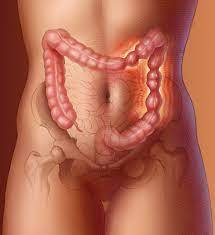How to Prevent Irritable Bowel Syndrome (IBS)
Introduction to Irritable Bowel Syndrome (IBS)
Irritable Bowel Syndrome (IBS) is a common gastrointestinal disorder that affects the large intestine, causing symptoms like abdominal pain, bloating, diarrhea, and constipation. While the exact cause of IBS is unknown, factors such as diet, stress, hormonal changes, and gut microbiota imbalance are believed to contribute to its development. Managing IBS can be challenging, but there are several strategies you can employ to prevent or minimize its symptoms. In this comprehensive guide, we'll explore various preventive measures you can take to manage IBS effectively.
Understanding IBS Triggers
Before delving into preventive measures, it's essential to understand the triggers that can exacerbate IBS symptoms. These triggers can vary from person to person, but common ones include:
1. Diet: Certain foods and beverages, such as dairy products, caffeine, alcohol, spicy foods, and artificial sweeteners, can trigger IBS symptoms.
2. Stress: Emotional stress and anxiety can worsen IBS symptoms or trigger flare-ups.
3. Hormonal Changes: Women may experience changes in IBS symptoms during menstruation or hormonal fluctuations.
4. Medications: Some medications, including antibiotics, can disrupt the balance of gut bacteria and exacerbate IBS symptoms.
5. Gut Dysbiosis: Imbalance in the gut microbiota, characterized by an overgrowth of harmful bacteria or a deficiency of beneficial bacteria, may contribute to IBS symptoms.
By identifying and avoiding these triggers, you can significantly reduce the frequency and severity of IBS symptoms. Now, let's explore preventive measures in more detail.
1. Adopting a Low-FODMAP Diet
FODMAPs (Fermentable Oligosaccharides, Disaccharides, Monosaccharides, and Polyols) are short-chain carbohydrates that are poorly absorbed in the small intestine and fermented by bacteria in the gut, leading to gas, bloating, and other digestive symptoms in susceptible individuals. Following a low-FODMAP diet involves reducing intake of foods high in these carbohydrates, such as certain fruits, vegetables, legumes, dairy products, and grains. Consulting with a registered dietitian can help you develop a personalized low-FODMAP meal plan that meets your nutritional needs while minimizing IBS symptoms.
2. Increasing Fiber Intake Gradually
Dietary fiber plays a crucial role in maintaining digestive health and regularity. However, for individuals with IBS, consuming high amounts of fiber, especially insoluble fiber found in bran and certain vegetables, may exacerbate symptoms like bloating and gas. Instead, focus on gradually increasing your fiber intake from sources such as soluble fiber (found in oats, barley, fruits, and vegetables) and flaxseeds. Adequate hydration is also essential when increasing fiber intake to prevent constipation.
3. Managing Stress and Anxiety
Stress and anxiety can have a significant impact on gut health and exacerbate IBS symptoms. Incorporating stress-reducing practices such as mindfulness meditation, deep breathing exercises, yoga, and progressive muscle relaxation into your daily routine can help alleviate stress and improve overall well-being. Additionally, prioritizing adequate sleep, regular physical activity, and maintaining a healthy work-life balance can also contribute to stress management.
4. Regular Exercise
Regular physical activity has been shown to benefit individuals with IBS by promoting regular bowel movements, reducing stress, and improving overall gut health. Aim for at least 30 minutes of moderate-intensity exercise, such as brisk walking, cycling, or swimming, most days of the week. Be sure to choose activities that you enjoy and consult with your healthcare provider before starting any new exercise regimen, especially if you have any underlying health conditions.
5. Probiotics and Gut Health
Probiotics are beneficial bacteria that can help restore balance to the gut microbiota and alleviate symptoms of IBS. Consuming probiotic-rich foods such as yogurt, kefir, sauerkraut, and kimchi or taking probiotic supplements may help improve digestive symptoms in some individuals with IBS. However, the effectiveness of probiotics can vary depending on the strain and individual response, so it's essential to experiment with different strains and consult with a healthcare provider before starting probiotic supplementation.
6. Mindful Eating Habits
Practicing mindful eating involves paying attention to your body's hunger and fullness cues, eating slowly, and chewing food thoroughly. Avoiding large meals and overeating can help prevent bloating and discomfort associated with IBS. Additionally, be mindful of portion sizes and avoid eating late at night or close to bedtime, as this can disrupt digestion and exacerbate symptoms.
7. Hydration
Staying hydrated is essential for maintaining healthy digestion and preventing constipation, a common symptom of IBS. Aim to drink plenty of water throughout the day and limit consumption of caffeinated and alcoholic beverages, which can contribute to dehydration and exacerbate IBS symptoms. Herbal teas and infused water are hydrating alternatives that can also provide additional health benefits.
8. Regular Medical Check-ups
Regular medical check-ups with your healthcare provider are essential for managing IBS and monitoring any changes in symptoms or overall health. Your healthcare provider can help you develop an individualized treatment plan, adjust medications if necessary, and address any concerns or questions you may have about your condition. Additionally, they can screen for other potential gastrointestinal disorders or underlying health issues that may be contributing to your symptoms.
Conclusion
Preventing Irritable Bowel Syndrome (IBS) requires a comprehensive approach that addresses dietary factors, stress management, physical activity, gut health, and mindful eating habits. By adopting a low-FODMAP diet, managing stress and anxiety, incorporating regular exercise, prioritizing gut health, practicing mindful eating, staying hydrated, and scheduling regular medical check-ups, you can effectively prevent or minimize IBS symptoms and improve your overall quality of life. Remember to consult with your healthcare provider before making any significant changes to your diet or lifestyle, especially if you have any underlying health conditions or concerns. With proactive management and lifestyle modifications, you can take control of your IBS and enjoy better digestive health and well-being.




No comments yet
Be the first to share your thoughts!